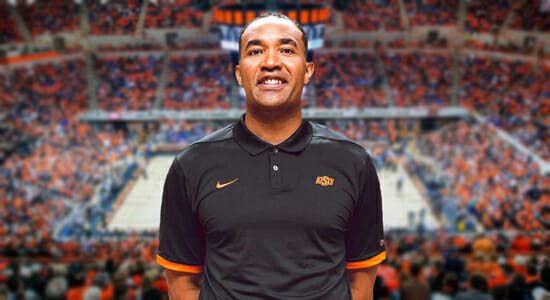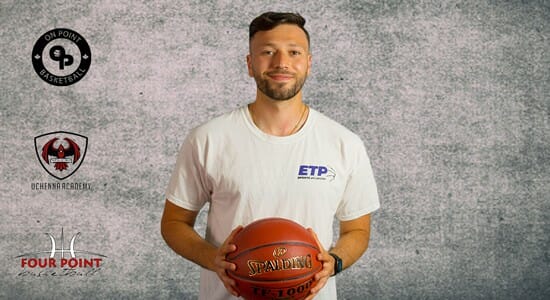
Former Alouettes Kicker Don Sweet Connects His Work As A School Teacher To Coaching
Don Sweet | Retired Place Kicker | Montreal Alouettes



Learn to breathe and relax when you’re in the classroom the same way that you should when you are on the field, things of that nature. I know many times when I talked to kids as a teacher I would always try to make them feel comfortable as much as I could.
Don Sweet
Retired Place Kicker
Montreal Alouettes
You played in five Grey Cups between 1974 and 1979, with each one being against the Edmonton Eskimos. You were named as the Most Valuable Canadian in 3 of those 5 games, and were a champion twice (’74 & ’77), hold the record for most field goals (6) and points (23) in a Grey Cup and are ranked 3rd all time in total points in Grey Cup games. As a young kicker in the CFL at the time having been a rookie only in 1972, what were the biggest lessons you learned from playing on the league’s biggest stage in the most famous rivalry of that era?
I think the biggest thing was being consistent in your work ethic. When you think of the kicking part of football I tell my guys “This is your period to shine”. You have offence and defence but when it’s kicking time, you must play it like a game. So you practice your kicking like a game and practice your schooling like a game.
Another lesson I learned was to be a little bit humble. There’s a funny story for my first year when we were playing against Hamilton and their kicker just missed from 35 yards.
He was complaining to the official that the ball went through the uprights and I shouted from the sideline, “Setter, put it down the middle and you won’t have to worry about it”. Well of course you know what happens then, it bites you in the butt and I went out and missed my kick.
You’re so close to everyone on the sideline then that some guy yelled, “Hey Sweet put it down the middle then you won’t have to worry about it!”. So being humble is pretty important.
Learn to breathe and relax when you’re in the classroom the same way that you should when you are on the field, things of that nature.
I know many times when I talked to kids as a teacher I would always try to make them feel comfortable as much as I could. Some of those lessons carried off into my work as a school principal and dealing with people. All aspects of teamwork would fall into that place as well.


After retiring from the CFL in 1985, you transitioned fully into your role as a school teacher and then became a principal. What were some key things you learned from football that helped you in the classroom?
All kids and most people want attention, they want affection but one thing you can never ever take away from them is optimism.
As a teacher, I would make sure to do what I can to help kids to be successful whether that was making the workload lighter or letting them know how well they’re doing. Kids learn in different ways. Some people learn by music, they learn by drama or acting it out, some people like poetry or rap.
Then there are people like myself and most athletes who are visual learners. Trying to connect and trying to make a positive situation for the kids is important in recognizing these things.
Also, teach them that there’s a value in when things don’t happen.
In 1972 it was my first year with Montreal. I was doing well early in the season and then started to miss several kicks in a row. I was cut after that season but the general manager brought me into his office and told me this. “Don, I know how good you are and how good you will be even though you struggled”.
So he gave me a contract to bring me back the next year, which made me work even harder during the off-season and I eventually played for another 12 years.
In 1975 we were playing in the Grey Cup in Calgary. There were 45 seconds left and I went onto the field to attempt a game-winning field goal. What happened was the holder dropped the ball flat on the ground, I tried to kick it, missed and we lost a Grey Cup. How do you respond to things like that? Well, you can go one of two ways and I just made sure to work a little bit harder the next year.
We went on to set a world record at the time for 21 field goals in a row the next year. The other thing that’s important about relationships is that people and kids will forget what you taught them but they will never forget how you treated them and that’s a pretty important thing.


You have now become known in the football community as a highly respected kicking coach. When did you decide to get into coaching kickers and what teaching methods have you used to help your kickers?
I worked in the community giving back and doing things that I like to do. I like to think that it probably started with Wally Bueno when he was with the Stampeders and BC lions, I worked with his guys.
Eventually, I worked with Calgary, Edmonton, Ottawa, Montreal and Saskatchewan. The first thing I wanted to find out was a kid that wants to kick. If they want to be just a wide receiver and kick a little bit then their legs will be tired and they won’t be as effective when kicking.
When I work with kids the main thing that I want to do is drive out the fear of failure. What that means is I’m trying to silence those tiny voices that take away your confidence. What if I miss, what will the coach say, what if I have to answer to the press? If all those negative things come in then it’s going to create a negative output in their mind.
So I try to help them eliminate those thoughts.
You have to do assessments, so I always try to put kickers in a situation where it is very game like. That way I can assess them and see how they really are when they are under pressure. This way I will know if they learned what I’m teaching them.
When I used to work with these guys and yourself included, I would say to take these 10 thoughts that I have for you and break it down to three. Then put it on a piece of paper, laminate it, then keep it in your duffle bag. Make sure that those are the most important things you focus on during the game.


You have many important philosophies when coaching kickers, with some of them being the phrase “less is more” and the acronym you made for your last name “Swing with easy every time”. Can you explain the significance of those philosophies you teach your athletes and why they are so crucial to success?
If you don’t get rid of old habits, when people are under pressure they are going to revert to their old way. I know you mentioned the one ‘less is more’ just now, that just refers to practising with higher efficiency.
You will get more out of kicking 20 to 30 balls but going through your routine taking a few practice swings each time and then kicking in comparison to kicking as many footballs as you can. It’s like practising golf at a driving range. I always ask “big bucket or small bucket?”
When you grab a big bucket of balls you’re just going to start hitting as many as you can, your hands will probably be sore and if anything you will have developed your bad habit even worse. If you use a small bucket then you can focus more on each swing, take your time and be more conscientious of your routine.
The phrase swing with ease every time just refers to your tempo and your rhythm and it worked out nice that it matches my last name. Another thing that I teach my guys is that it’s okay to be disappointed because you didn’t live up to what you wanted to do, but don’t be discouraged. You can always come back and practice to figure out what you did wrong.
This is something that hardly anybody talks about Matias. You need to train the subconscious. We’re having a conversation, we are conscious of what we are saying and what we are hearing. But if you got in your car to drive home and I asked you how many times did you use the brake, how many times did you use your turn signal, you wouldn’t be able to answer me. You won’t even know how you got home but that’s the subconscious at work.
What I say to guys is “I’m breaking a habit of yours now. I want you to take the pen and put it in your non-dominant hand and try to write your name”. They usually get frustrated and look at me confused to which I respond how long it’s going to take you to write your name with your non-dominant hand is the same amount of time it’s going to take to break this bad habit of yours.
This will help you lead to being more consistent when you build a good habit. By driving out the fear of failure from helping guys build a consistent routine I want them to be able to eliminate the thought process and just react.


What is the most common challenge you see your athletes struggle with today and how do you use your philosophies to guide them in the right direction?
One of the most common challenges I see today is that guys want instant results.
It has become increasingly harder to get guys to stay the course and follow the process that I train them with because they want a quick fix. That just isn’t realistic to becoming better and more consistent.
I’m not a results guy; I’m all about the process. It gets frustrating when a kid will come back and say that they saw this tip on YouTube or they were talking to someone else who offered them a tip, they tried it and it worked.
If you keep changing what you do every day it’s going to be very difficult to become consistent. Kids want results fast, they don’t understand the importance of building blocks for foundational skills.
Don was my kicking coach during the latter half of my football career and has become a mentor ever since. His brilliant but simple teaching methods have transcended the classroom and he has become known as the best in the game for coaching kickers. It was a pleasure as always to speak with Don about how he uses several fundamental principles he learned through his football and teaching career to help kickers in the elite Canadian ranks not just become better players but also become better people. Coming across a coach like Don happens once in a lifetime, and from this interview, you can see the bright spots of his wisdom and outstanding character.
The Latest







